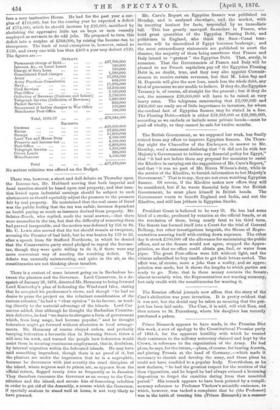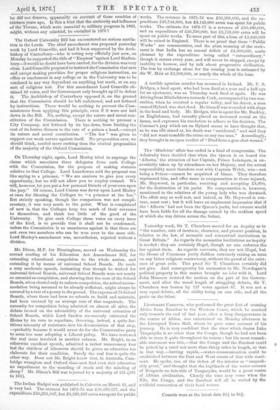Prince Bismarck appears to have made, in the Prussian Diet
this week, a sort of apology to the Constitutional Prussian party of 1863-5, for the apparent hostility with which he treated their resistance to the military autocracy claimed and kept by the Crown, in reference to the organisation of the Army. He had plans, he says, for the future,—plans, of course, for beating Austria, and placing Prussia at the head of Gerniany,—which made it necessary to cherish and develop the army, and these plans he could not have confided to a popular body. Nevertheless, as he now declares, "he had the greatest respect for the motives of the then Opposition, and he hoped he had always evinced a becoming. disposition to forget the enmities dating from that unsettled period." His remark appears to have been pointed by a compli- mentary reference to Professor Virchow's scientific eminence, to which, however, was tacked a complaint that he (the Professor) was in the habit of treating him (Prince Bismarck) in a manner
he did not deserve, apparenlly on account of these enmities of -thirteen years ago, Is this a hint that the authority and influence of the Throne, which were essential to military progress in 1863, might, without any mischief, be curtailed in 1876?



































 Previous page
Previous page